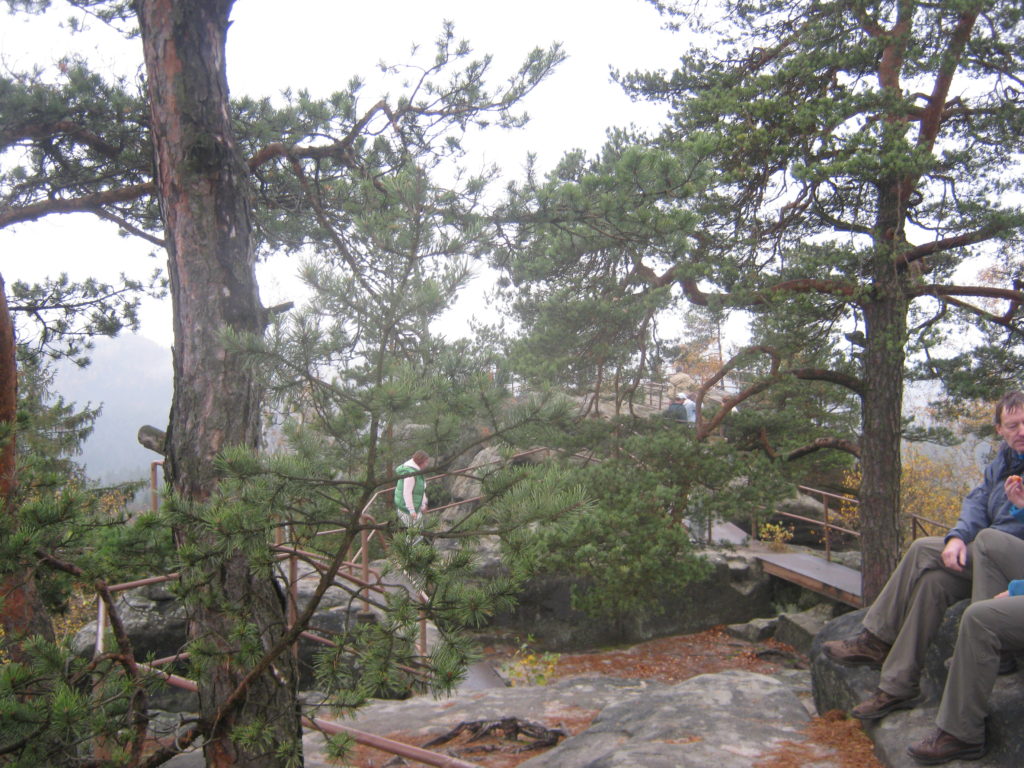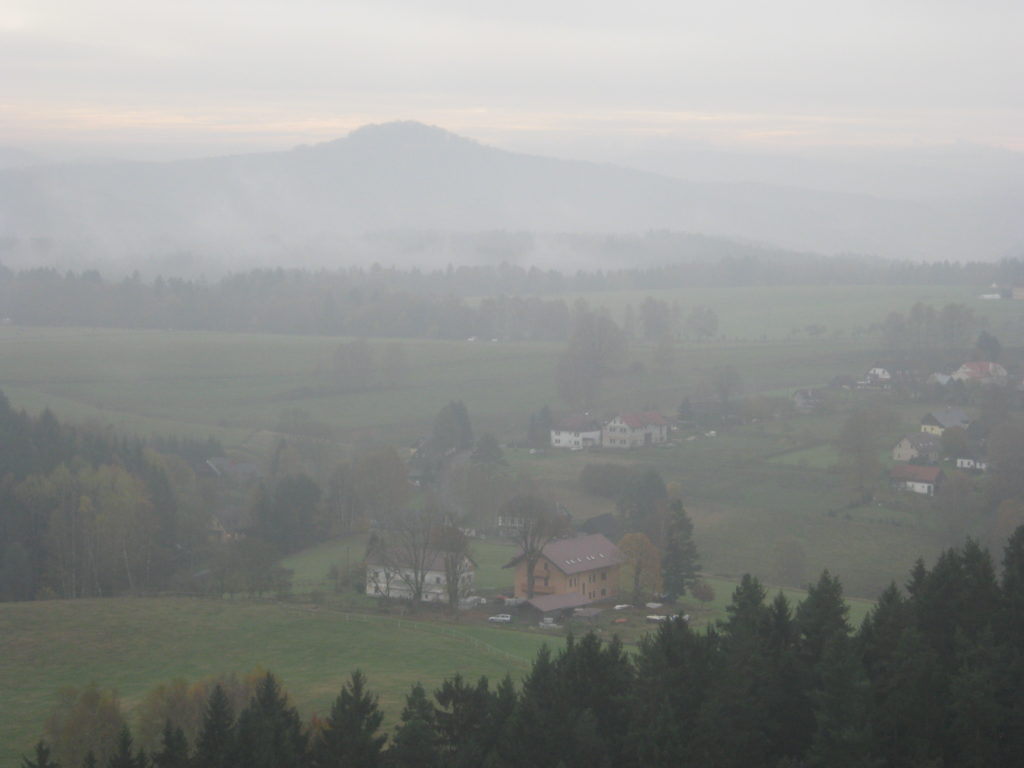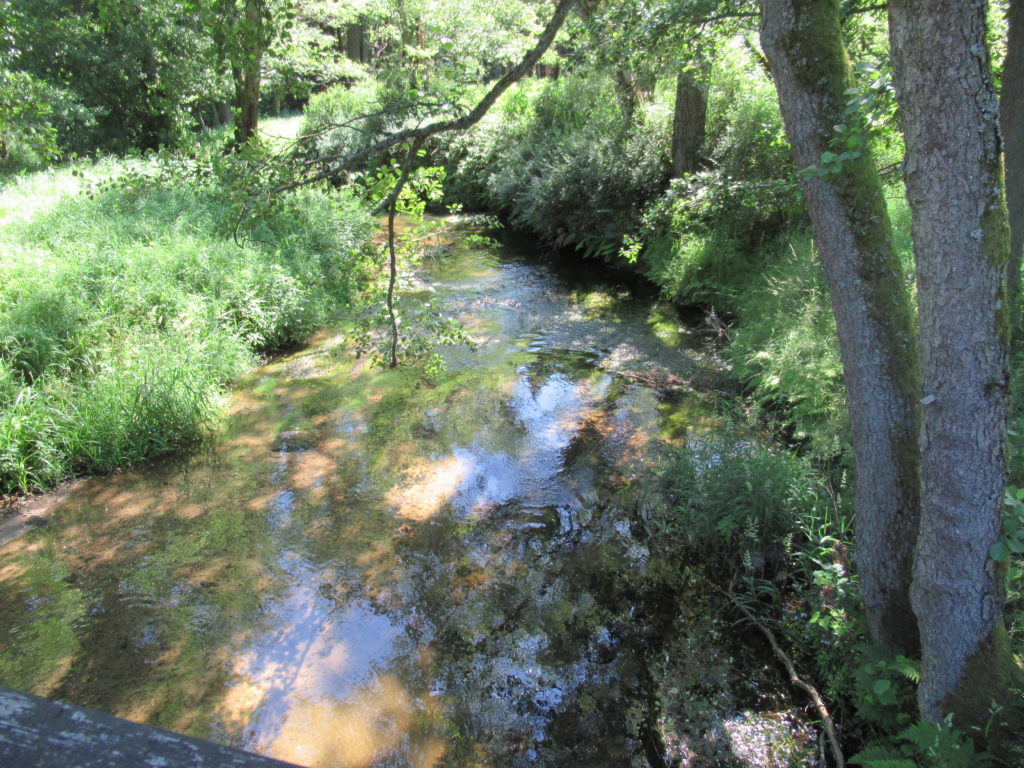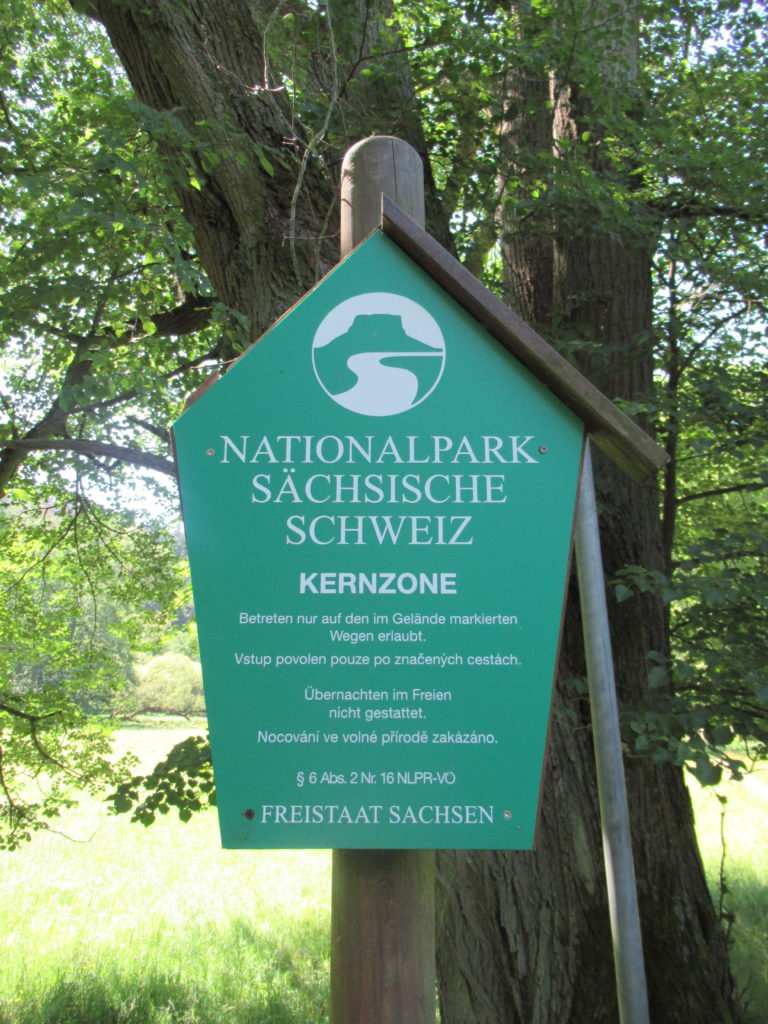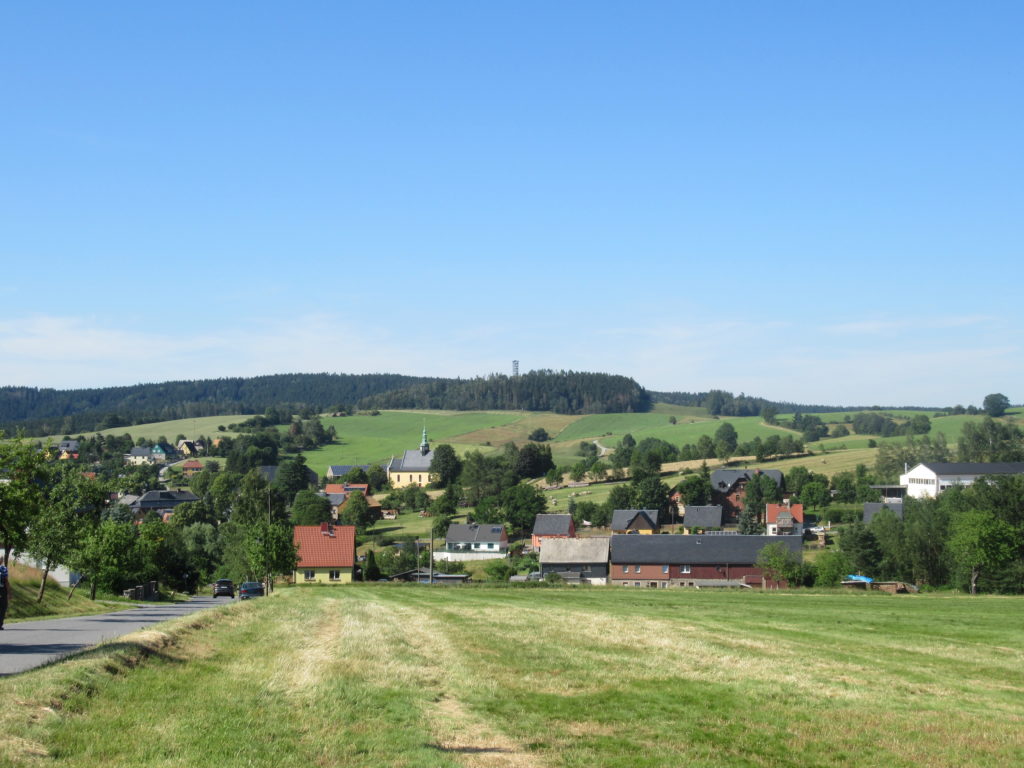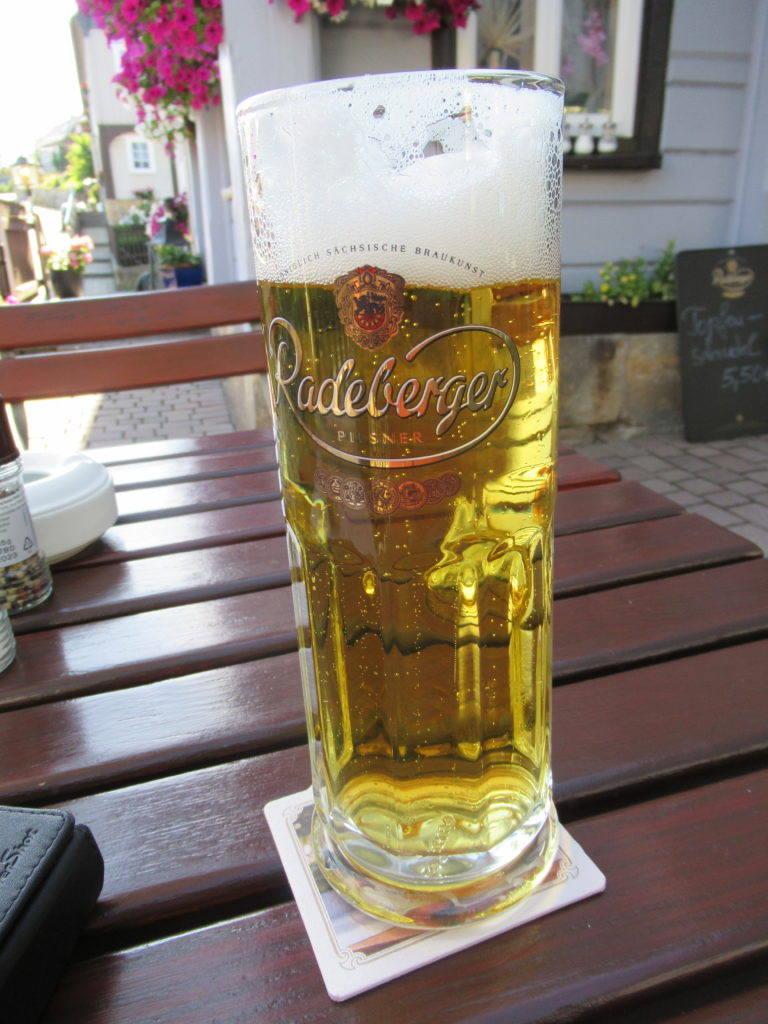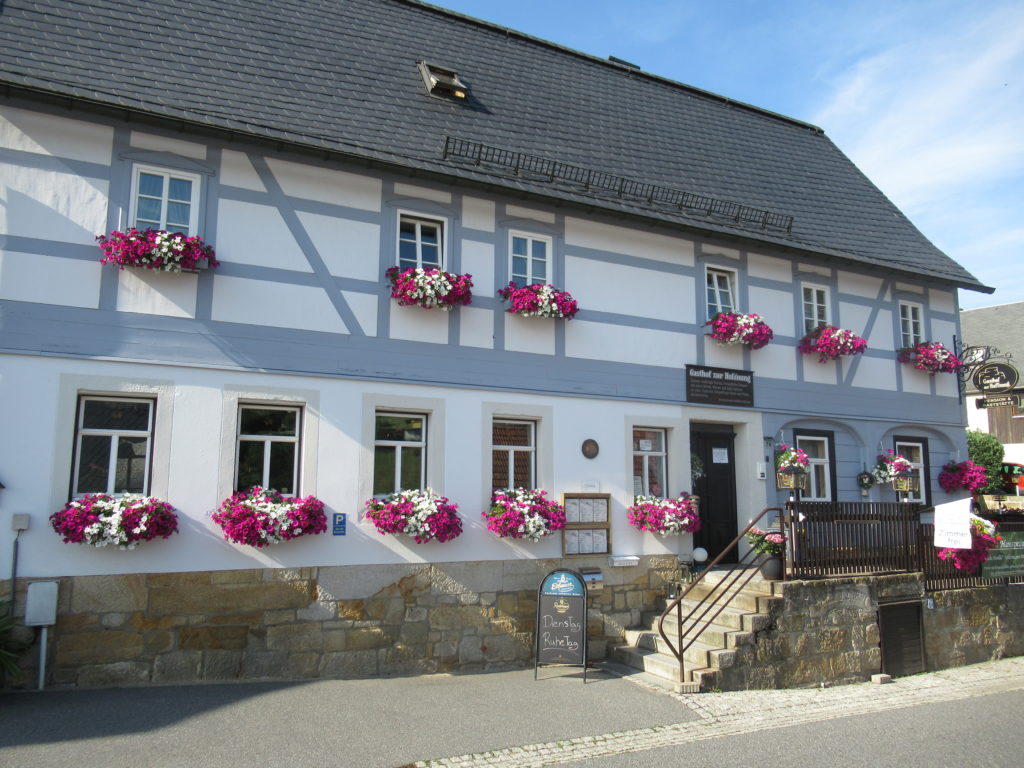
The first Toleranzpatent / Patent of toleration of 1781, whilst giving some religious freedom to protestants living within the Austro-Hungarian Empire, was still quite restrictive, in particular insisting that any buildings should not look like churches and should not have an entrance directly onto the street. It was only after Emperor Franz Joseph 1 issued his Protestantenpatent / Protestant patent in 1861, that non-Roman Catholics were finally allowed to build and own places of worship which actually looked like churches, with towers or spires and bells, etc.
Therefore within the borders of what is now the Czech Republic, there are numerous church buildings similar to this one in Litomerice, that date from the second half of the nineteenth century, and the early years of the twentieth century. Their architectural style is what I would describe as red-brick Victorian Gothic. In Czech they are known as Cervené kostely / Red or Dark Churches.
These Cervené kostely are located in towns and cities where there was a majority or a large German-speaking population and they were built for worship by German-speaking Lutherans. German-speakers were often the owners of factories and businesses and were wealthy enough to raise the necessary funds for their design and construction.
As I have previously written, Tomáš Garrigue Masaryk, the founder and first president of Czechoslovakia, was very keen that the boundaries of this new nation should be the historic ones of Bohemia and Moravia which predominantly follow the ridges of the surrounding hills and mountains. This was to ensure that the new nation had defensible borders and that also, nearly all Czech speakers would be living within those borders.
However, one important consequence of the adoption of these borders was that many people of German ethnic origin were also incorporated into Czechoslovakia. According to a census taken in 1921, just over three million Germans lived in Czechoslovakia accounting for around 23% of the country’s total population. The areas where Germans formed a majority were known as Sudetenland and the people themselves as the Sudetendeutsche.
In December 1918, less than two months after the new independent state of Czechoslovakia had come into existence, the Czech Lutheran Church and the Czech Presbyterian/Reformed Church agreed to unite, forming the Ceskobratrská církev evangelická (CCE) / Evangelical Church of Czech Brethren (ECCB). They were then, and still are, the largest Czech Protestant Church and celebrated the one hundredth anniversary of their formation in December last year.
But it was only the Czech-speaking Lutherans who joined the newly formed CCE/ECCB. A separate German-speaking Lutheran Church remained, until 1945.
In 1945, under the Potsdam agreement and the Beneš decrees, nearly all ethnic Germans were expelled from Czechoslovakia and the German-speaking Lutheran Church within the country, ceased to exist, leaving behind empty Cervené kostely.

It has been interesting visiting, photographing, and trying to discover what has happened to these abandoned Church buildings since 1945. The Cervený kostel in Brno, which I previously featured in this blog post about the city in 2012, is now in the hands of the CCE/ECCB and is used regularly by them for worship.
The Cervený kostel in Olomouc, which I haven’t visited, meaning that I don’t have a photograph, also initially passed to the CCE/ECCB. But in 1957, it was given to Palacký University and for many years, housed the archives of their Research Library. It is now to be revamped to become a new venue for concerts, exhibitions and a café.

The Cervený kostel in Litomerice, which I featured at the beginning of this post and can be seen again, from a different angle, in the photograph above, now belongs the relatively small Czech Baptist Union. But whether the Baptists in Litomerice had their own building prior to 1945, or how they were able to take over the former German Lutheran Church, is a mystery to which I don’t know the answer. There is no relevant information on their website.

The photograph above is of the Cervený kostel in Varnsdorf, a town which lies right on the border of the Czech Republic with Germany. So far as I can tell, the church is not currently used for anything. I believe it now belongs to the town council who appear to be about to carry out much needed repair work, judging by the recently erected scaffolding around the spire.

Kostel svatého Pavla, located in the centre of Ústí nad Labem, is another fine example of a Cervený kostel. Despite appearances, the building is not made of bricks, but of concrete, covered with glued red tiles to imitate bricks. The Czech Wikipedia article about this church explains that after 1945, all German inscriptions were either ground down or whitened so as to be no longer visible.
This Church is now co-owned and administered by the CCE/ECCB and the Czechoslovak Hussite Church (CCSH) who both use it for worship – the CCE/ECCB on Sunday mornings and the CCSH on Sunday afternoons.
I am well aware that there are several more Cervené kostely elsewhere in the Czech Republic which I hope to find, visit, and photograph, over the next few years. In the meantime, if anyone can throw more light on how, post 1945, they have ended up in the hands of their current owners, please do leave a comment here on my blog.
Finally, I once again apologise for the absence of some Czech diacritics. Unfortunately, as I have previously explained, my blog set-up can only cope with certain diacritics. Any it doesn’t like are rendered as question marks, and names such as Litom??ice and ?ervené kostely would appear in the text.













